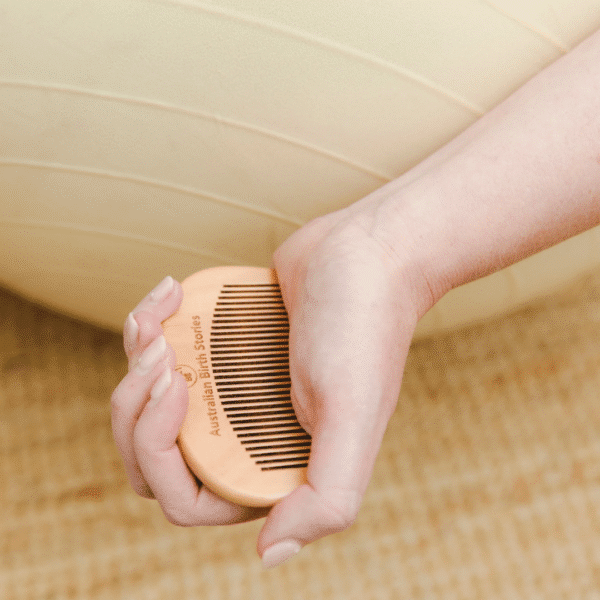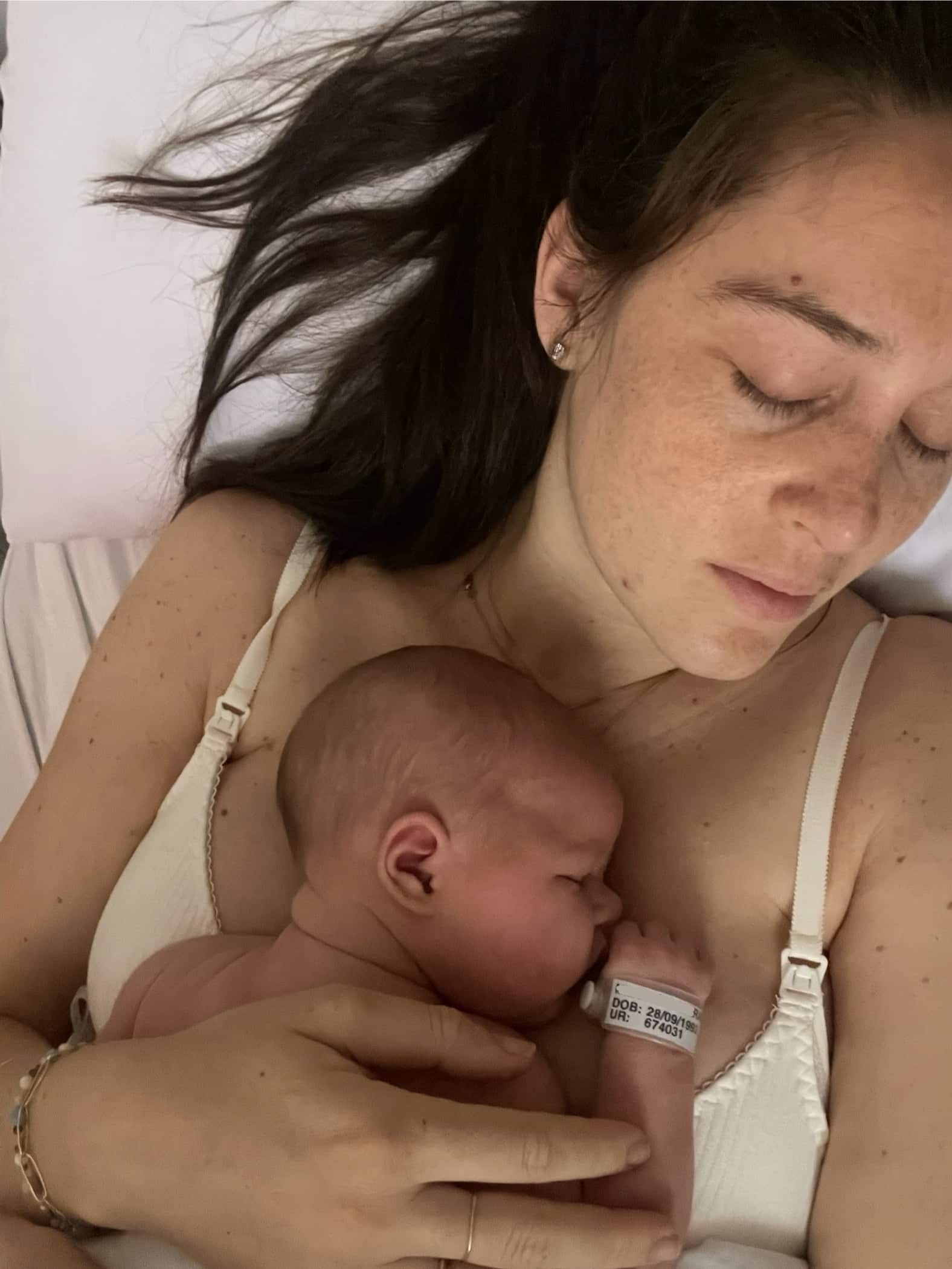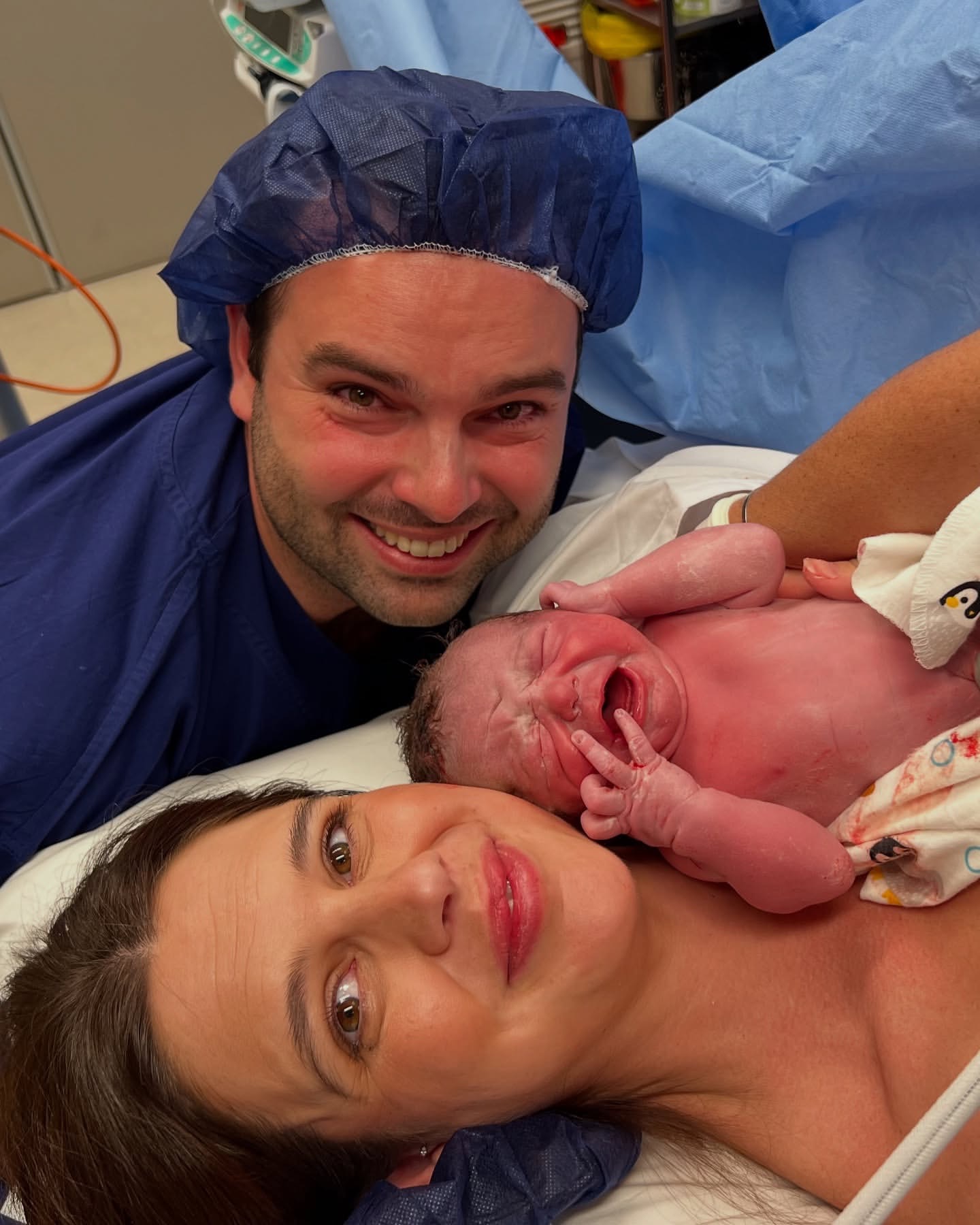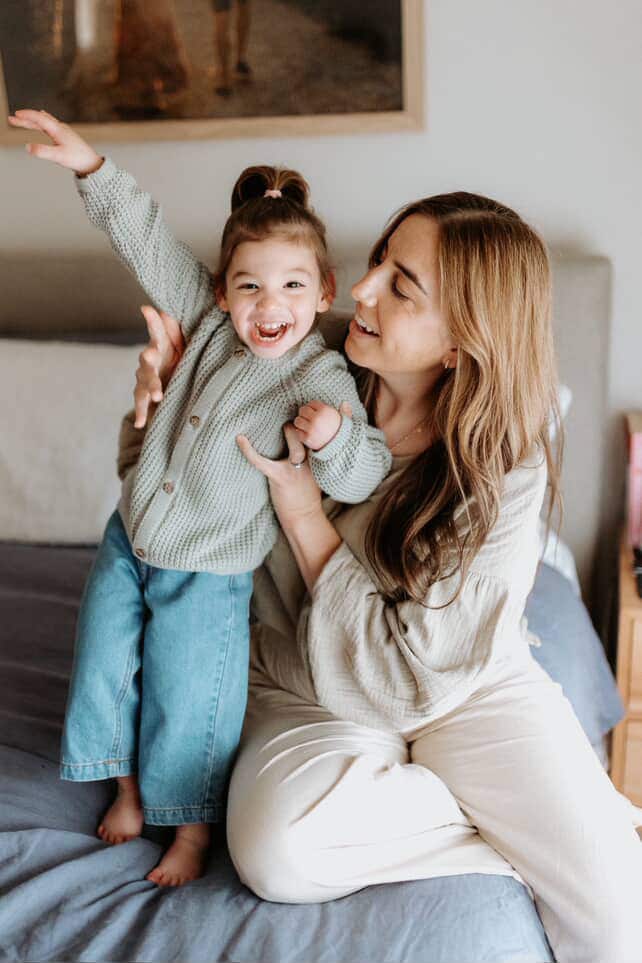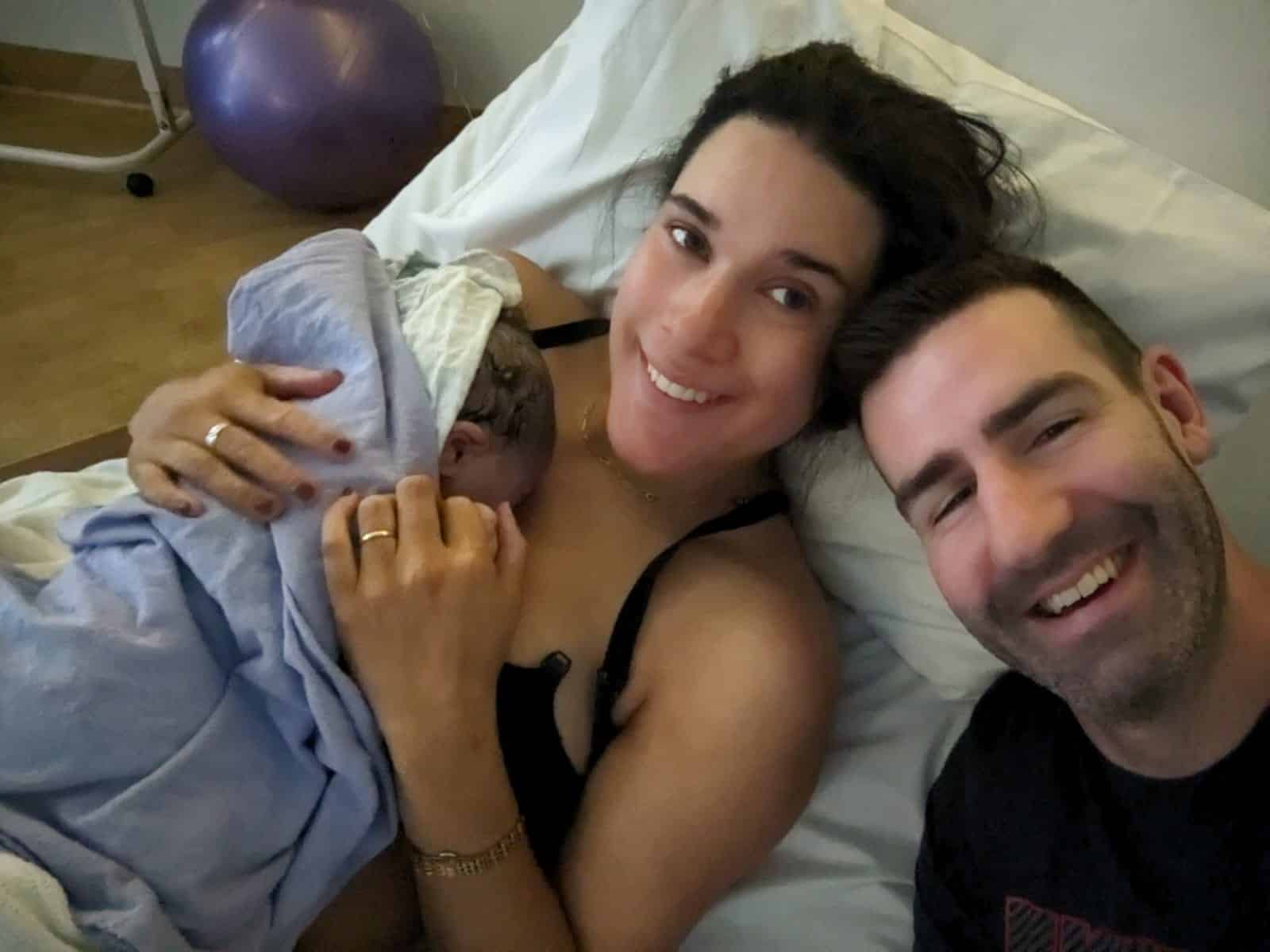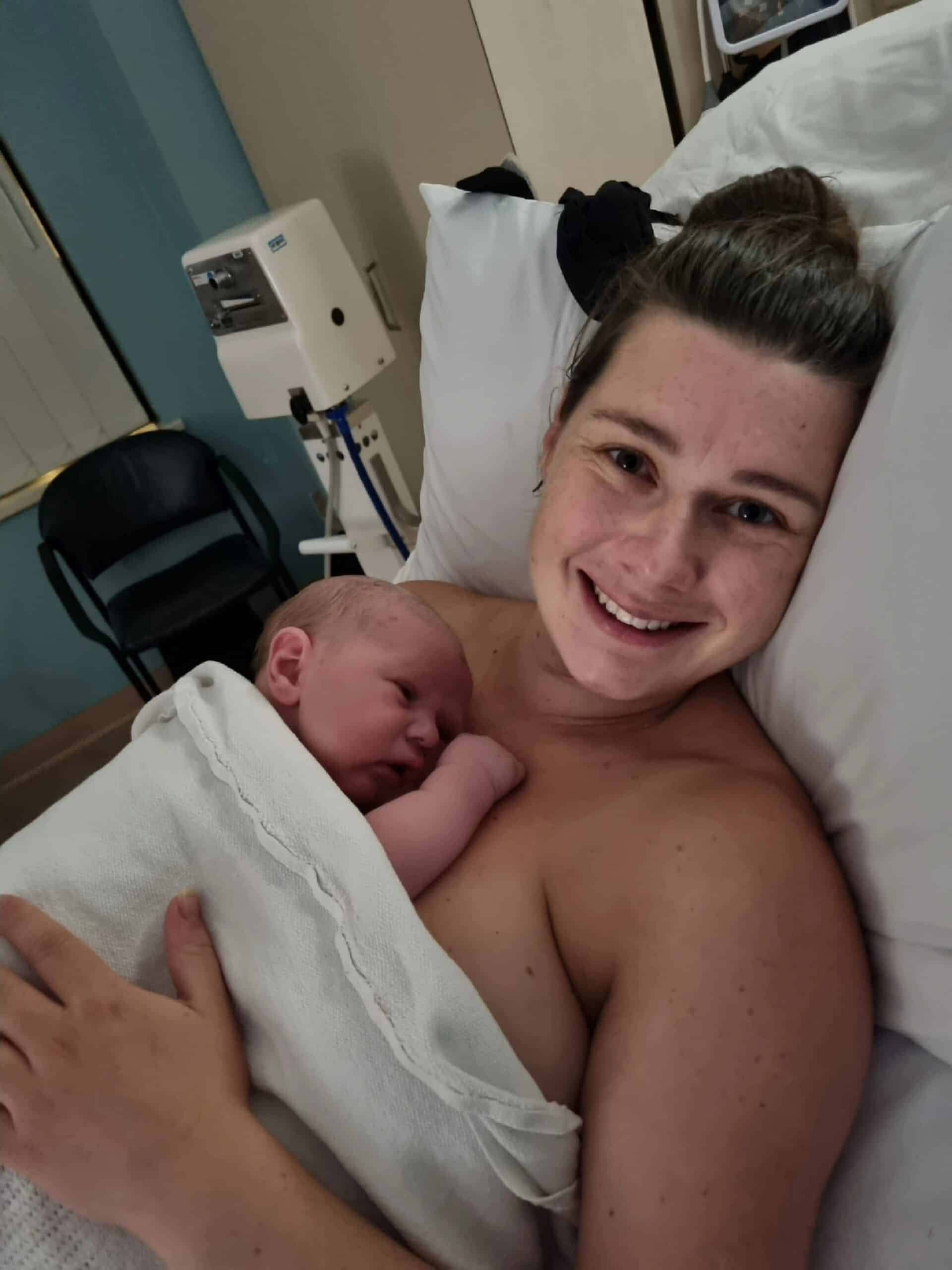Podcasts Alex | Postpartum – solo parenthood, donor-conceived, donor milk
EPISODE 438
Alex | Postpartum – solo parenthood, donor-conceived, donor milk
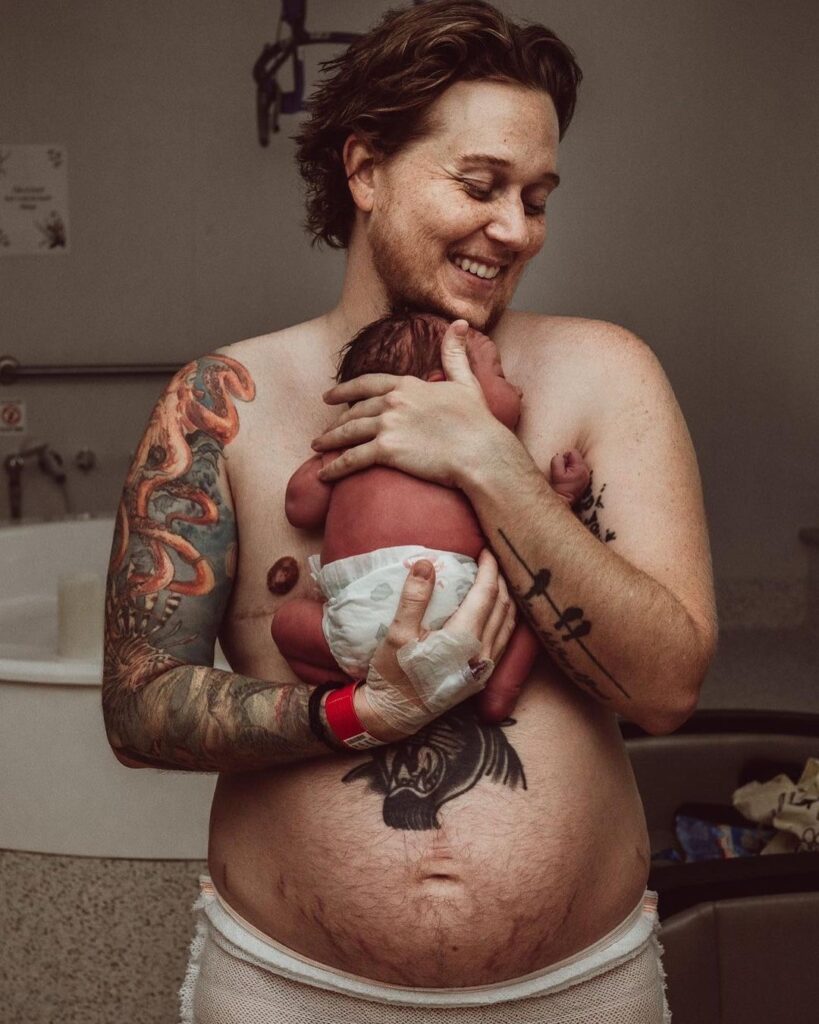
“I’ve always wanted to be a parent in one way or another. Throughout my life it’s always been something I wanted to do, whether by myself or with a partner. I was born female and never had the urge to carry and birth a baby but once I transitioned, I knew it was something I could do for myself; I have the reproductive organs to do so.
“When I started transitioning I was told that I wouldn’t be able to get pregnant or it would be a rare event as there’s not many people who fall pregnant on testosterone. We also don’t have much research on the effects of testosterone on egg reserve or quality. There was the discussion of freezing eggs before hormone therapy but at that point it was more important for me to go on the hormone therapy. As soon as you stop the testerone, your cycle starts back up again and everything goes back to normal.
“I got a referral to an IVF clinic so I could see whether my reproductive organs were okay after testosterone, how to start the fertility process, when to stop taking hormones, the quality of my eggs…I did quite a bit of testing and everything was fine. It was only the cost factor and waiting times and donor situation that was trickier. I went to Rainbow Fertility who worked closely with same-sex couples and surrogacy and I felt somewhat comfortable going there. I tend to feel apprehensive going into any medical institution because you kind of have to out yourself and you never know what the response will be.
“Testosterone gives you masculine features but when I came off it to start a few menstrual cycles, it was okay because I knew it was for a reason. It’s quite confronting to read a piece of paper with very non-emotional details of the sperm donors that are available through the IVF clinic so I actually met a really lovely donor through a specific donor page. I met them a few times in person and learnt about them and their childhood and then we drew up a contract straight away; no money was exchanged, I had full custody, if Lenny wants to meet him in the future that’s also fine.
“I was documented as Lenny’s mother on the birth certificate and there was no getting around it as I’m a single parent giving birth in Queensland. The donor didn’t need to be documented and Centrelink was fine in knowing that Lenny was donor conceived. It was a home insemination situation and we met up every month for four months and I conceived on the fourth month. I tracked my ovulation and figuring out the time that we were both available was quite stressful.
“I have a great GP and I live close to the Gold Coast Hospital and managed to get into the MGP programme. I felt quite awkward in the new space of the maternity ward and I didn’t know if I was the first trans-person they had looked after but my midwife was incredibly supportive and understanding. I was really supported to have a vaginal birth and I had a friend prepared to support me and hired a birth photographer, too.
“I went on a babymoon and ended up in hospital with pains and reduced foetal movement. Thankfully he was fine so I flew home two days later. I was a bit worried by my size; I was quite little so I got a scan at 37.5weeks and he was measuring quite small and they suggested intrauterine growth restriction (IUGR) so that’s when we started discussing induction.
“I was induced overnight with the balloon catheter and it fell out on its own which was great. An hour later I was in the birth suite and had my waters broken. I was walking around, using the birthing ball, chatting to everyone between contractions. After being in the shower for a while I got in the bath; it was a pain I wasn’t expecting, so much more intense that I could have imagined. I had a few puffs of the gas + air but it wasn’t my thing, it made me feel really spaced out.
“I sat on the toilet for a while and roared into a towel. I got on the bed because his heart rate was dropping and they were getting concerned, especially because of his IUGR status. I birthed on my back which wasn’t my plan but in the moment it didn’t bother me. He came out after about five minutes of pushing and he came straight to my chest; it was so surreal, this baby I’d grown. We went home at 6pm that night and settled into our bubble at home. Sam stayed with me for two weeks which was so helpful. My midwife came for the first few days and then once a week for six weeks.
“I sourced donor milk through a facebook page called Human Milk for Human Babies and managed to get about 30 litres through them which sounds like a lot but it’s surprising how fast it goes. I also had a friend who had twins and she was able to provide me with colostrum and expressed breast milk. I also put a request up on facebook and I had quite a few people reach out to donate their milk. I took the colostrum and some of the expressed milk to the hospital.
“I had the postpartum blues and the emotional rollercoaster of that and then Sam left. It was hard for the first week but I did it and got used to it. Sam had filled my freezer with meals which was so helpful and family and friends dropped in when they could.
“I got significantly dysphoric in postpartum. In pregnancy I loved my body, I loved my bump and my curves which was a weird thing for me to think about even though I was misgendered most days. Once I had Lenny, I had a loose stomach, fat in different places, I knew it was going to be harder to lose that weight and it took a toll on me mentally. That was the hard part, the physical side of it. I really had to work through the steps of knowing that my body had done the work of pregnancy and it would look like it did before but it was going to take time.”
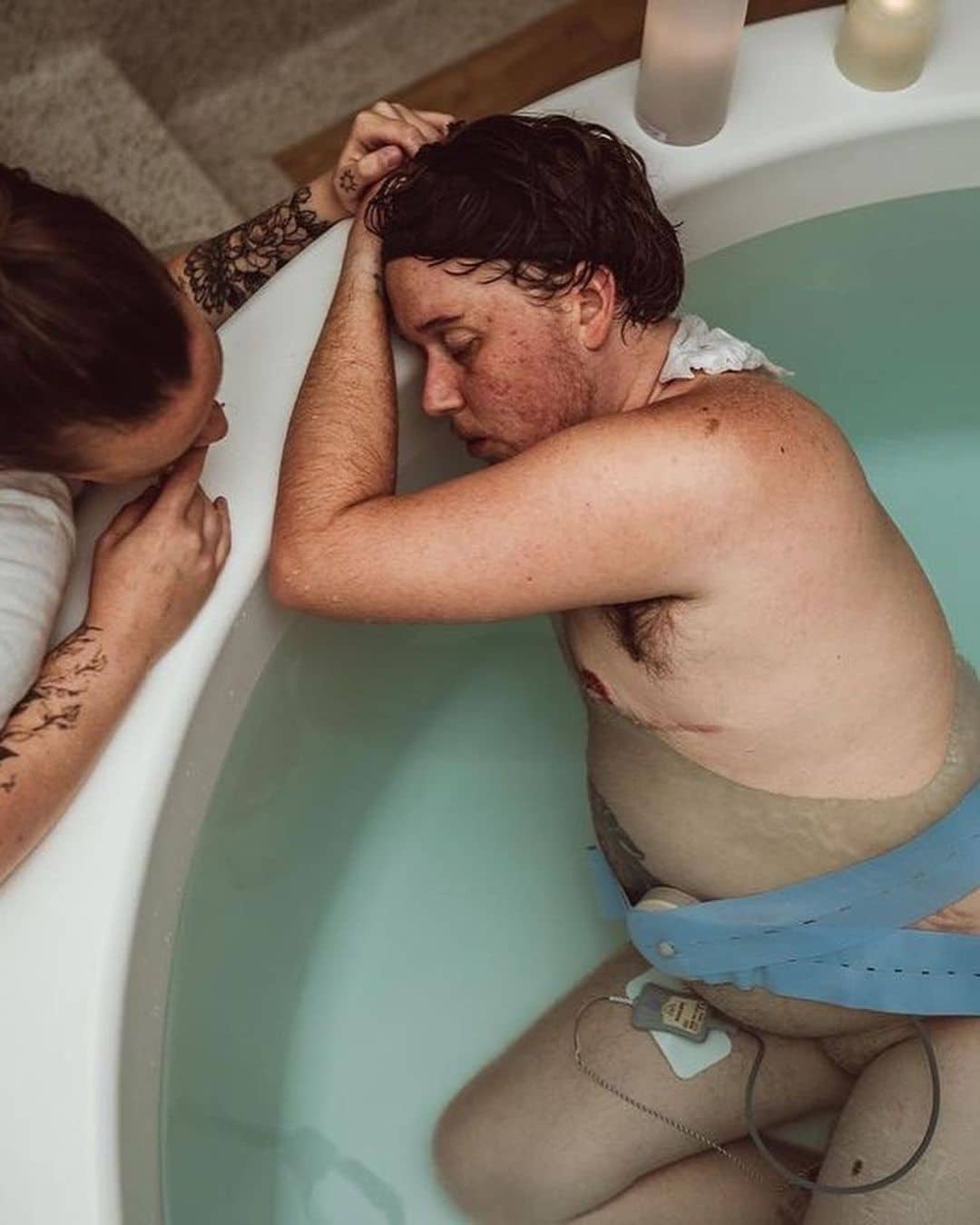
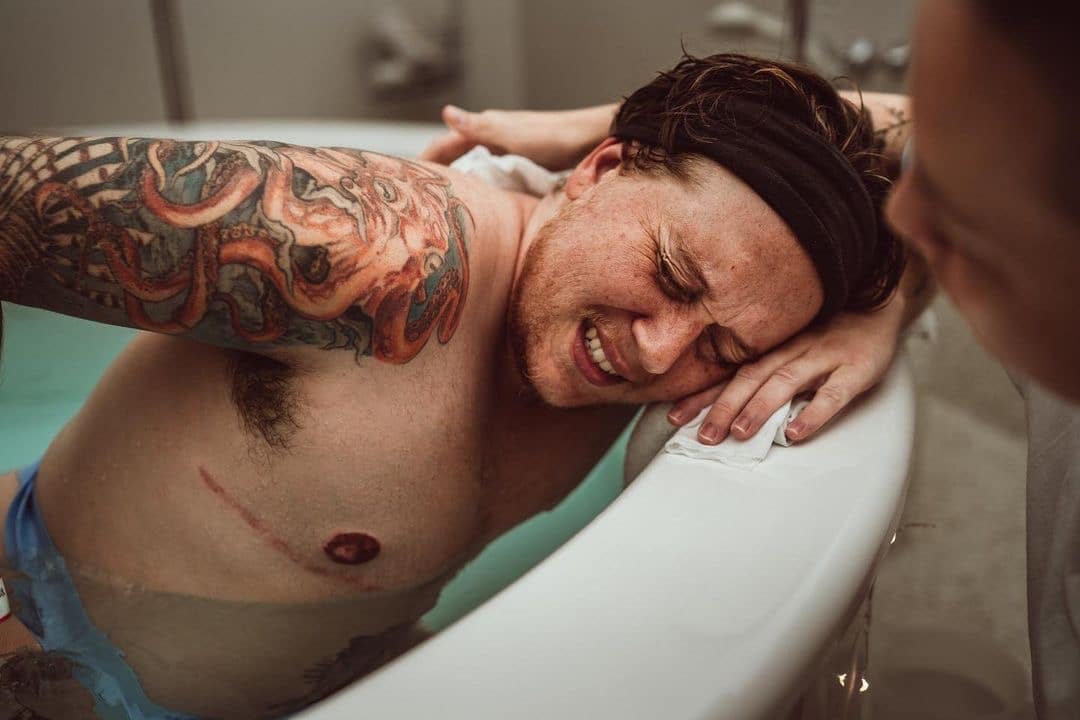
Topics Discussed
donor milk, donor-conceived, IUGR, MGP, One baby, Physiological birth, Solo parenthood
Categories
Related Products
-
Birth Combs: Harness Your Body’s Natural Pain Relief
$24.95Crafted from smooth, natural wood, our birth combs activate specific pressure points in your hands that trigger your body’s innate pain-relieving responses.
Join the conversation
Sign up to get the latest updates, freebies, podcast releases straight into your inbox
@AustralianBirthStories
Follow along with us
@AustralianBirthStories
Follow along with us
@AustralianBirthStories
Follow along with us
@AustralianBirthStories
Follow along with us
@AustralianBirthStories
Follow along with us
@AustralianBirthStories
Follow along with us
@AustralianBirthStories
Follow along with us
@AustralianBirthStories
Follow along with us
@AustralianBirthStories
Follow along with us
@AustralianBirthStories
Follow along with us
@AustralianBirthStories
Follow along with us
@AustralianBirthStories
Follow along with us
